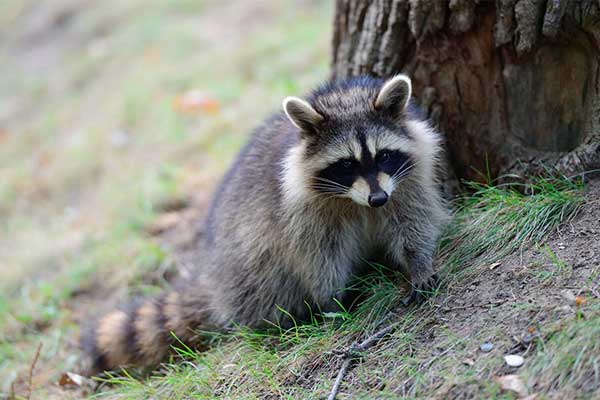 Raccoons are commonly thought of as clever, mischievous creatures. Their cute appearance often masks the fact that they can be a significant nuisance when they get inside your home. As for raccoon removal, there are, believe it or not, myths that can prove to be expensive mistakes when dealing with raccoons, so let’s separate fact from fiction. Here’s a list of claims with a fact-checking breakdown.
Raccoons are commonly thought of as clever, mischievous creatures. Their cute appearance often masks the fact that they can be a significant nuisance when they get inside your home. As for raccoon removal, there are, believe it or not, myths that can prove to be expensive mistakes when dealing with raccoons, so let’s separate fact from fiction. Here’s a list of claims with a fact-checking breakdown.
Myth 1: Raccoons Can Be Easily Trapped Using Store-Bought Methods
Though raccoon traps can be found in many hardware shops, just setting one out doesn’t necessarily guarantee a successful removal. Raccoons are smart creatures and can quickly learn how to avoid traps if not done correctly. They may also find their way into your attic or crawl spaces in hard-to-access places, making DIY removal impractical and/or unsafe. Wildlife removal specialists know how raccoons think and behave, and they utilize advanced trapping methods to capture them safely and humanely.
Myth 2: Raccoons Are Just Looking for Food, and They’ll Leave on Their Own
It’s seductive to think that raccoons are just on the hunt for a meal and will go home when they’ve eaten their fill. But once they’ve established a suitable entry point into your home, they rarely retreat without intervention. Raccoons make determined thieves, after all, and when they’ve found an easy target, they often return regularly for more. They typically inhabit attics, chimneys or basements where their nesting and use can cause significant damage and contamination. A raccoon infestation can result in extensive damage to your home’s insulation, wiring, and overall structure if left untreated.
Myth 3: Raccoons Are Harmless and Don’t Pose Any Threat to Humans
Some folks can see raccoons as harmless animals, though they can be a grave danger to your property and your health. Raccoons can harbor diseases like rabies, leptospirosis, and toxoplasmosis that can spread to people and pets. Their poop and pee can also harbor parasites like roundworms, which can lead to long-term health problems. Raccoon removal or control without equipment and expertise could put you in a hazardous position. Professional mammal control services will do the job safely and effectively.
Myth 4: Raccoons Only Appear at Night
Raccoons may be nocturnal, but that doesn’t mean they’re only a problem at night. They may be more active during the day, especially if they have young to tend to. In cities, raccoons can be more active during the daytime without predators to fear and with a more reliable food source. If you notice raccoon activity — day or night — it’s best to act promptly to prevent the situation from worsening.
Myth 5: Raccoons Can Be Easily Exterminated or Killed Without Consequence
In many areas, harming or killing raccoons without proper permits is illegal, as they are a protected species. Humane raccoon removal is always the ethical solution. AAA Kyles Wildlife Removal and other professionals know how to legally and humanely remove and relocate a raccoon from your property safely and without harm to your backyard animals. Furthermore, legal aspects aside, taking lethal action can bring in an entirely new world of pest or wildlife activity within the walls of your home.
Myth 6: Once the Raccoon Is Gone, You Don’t Need to Worry About Future Problems
Getting rid of a raccoon is only part of the solution. If one raccoon has made it into your home, there are probably vulnerabilities in your abode that will let in other wildlife as well. Professionals will inspect the entire house to ensure all entry points are closed, thus protecting your home from future invasions. Raccoons are resourceful when locating small holes, cracks, and openings; if they are not dealt with, they will return.
Myth 7: Raccoons Don’t Need to Be Relocated; They’ll Find Their Way Out
You might think raccoons will leave alone once you take their food away or block their entry points. Once a raccoon takes up residence in your home, it can be difficult to convince it to leave, especially if the critter has babies. Relocating a raccoon can lead to disorientation, an inability to locate food, and potential injury or even death, mainly if it’s done inappropriately.
What You Should Do
Suppose you suspect that you may have a raccoon infestation or you’ve discovered signs of one. In that case, the better decision is to call a professional wildlife removal service like AAA Kyles Wildlife Removal. Our team is trained to handle raccoons safely, humanely, and effectively. We can assist you with examining the situation, removing the raccoon, and ensuring that your home is secured against additional invasions.
Final Thoughts
Raccoons are not the easiest pests to handle. Knowing the myths and realities of raccoon removal will help you make the right choice to keep your home and family safe. Avoid falling victim to common misconceptions — call the AAA Kyles Wildlife Removal professionals for safe, humane, and effective methods of ridding yourself of unwanted raccoon visitors.
Contact us today for a consultation, and if you are facing any raccoon situation, leave the rest to us.
